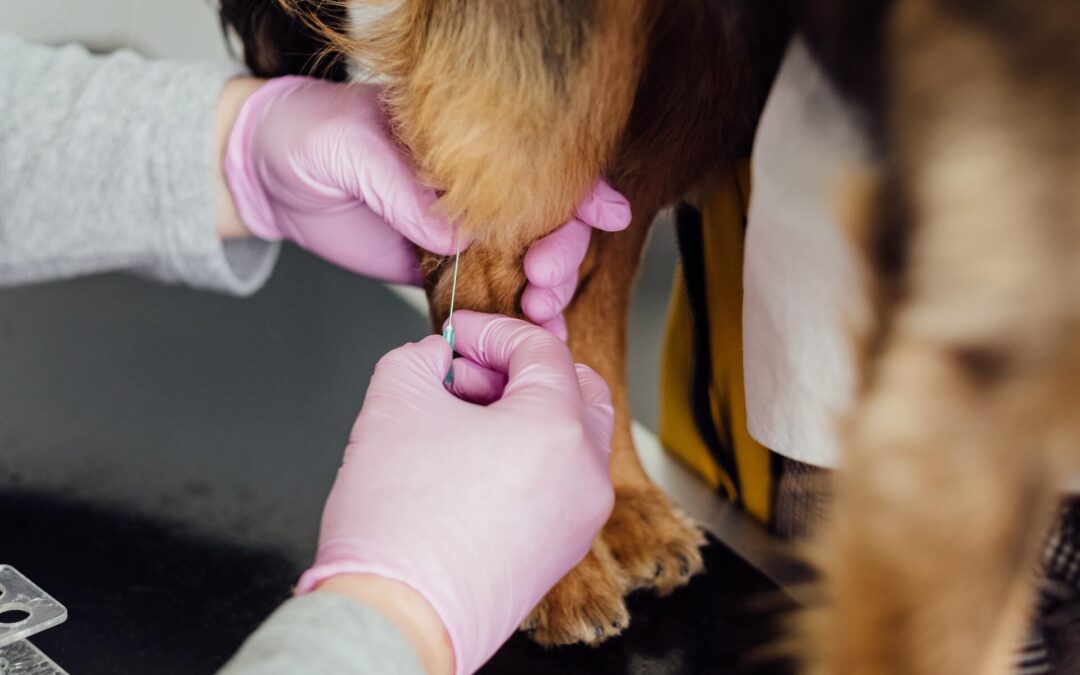My Vet
Animal Hospital
Blog
Fun facts, information, and news directly from the My Vet Animal Hospital team!


My dog has separation anxiety – what can I do?
Just like humans, dogs can experience intense emotions and struggles in their daily lives. If your dog becomes quite anxious and distressed when you leave them alone, they might be suffering from separation anxiety. What is Separation Anxiety?Separation anxiety is a...

Is it necessary to vaccinate my pet?
Bringing your pet to the vet might not always be easy, but skipping vaccinations can seriously impact their overall health. Vaccines not only prevent your pet from catching infectious diseases but also offer other important benefits, including: Reduced disease...

Hypothyroidism in dogs
WHAT IS THE THYROID GLAND?Dogs have 2 thyroid glands located in the neck on either side of the trachea. This gland produces thyroid hormones, crucial for regulating the metabolism of most of the organs in the body. In other words, the thyroid hormones control how fast...

Home cooked diets – how to do it well?
Before commercial diets became widely available, our pets mainly ate home cooked meals and table scraps. Once pets started to be considered as another valued member of the family, the commercial pet food industry increased its presence in the market to provide more...

Risks with feeding raw meat diets
Feeding raw meat to dogs has recently gained popularity among commercial companies, breeders and pet owners who believe it mimics the natural diet of their canine ancestors. While they may argue that it offers numerous health benefits, it is essential to understand...

Common eye conditions in dogs
1) Conjunctivitis or ‘pink eye’The conjunctiva is a mucous membrane that lines and protects the white of the eye and the eyelids. Dogs also have a ‘third’ eyelid or nictitating membrane which is also covered in conjunctiva. The third eyelid produces tear fluid and...

Diabetes in Dogs
Diabetes in dogs, also known as canine diabetes mellitus (D.M), is a metabolic endocrine disorder that affects the dog’s ability to regulate blood sugar levels. Just like in humans, dogs can develop both Type 1 and Type 2 diabetes. While it is more common in older...

Diabetes in cats
Feline diabetes mellitus (DM) is a metabolic disorder that affects a cat's ability to regulate its blood sugar levels, resulting in high blood sugar levels (hyperglycemia). DM is considered the second most common endocrine disease in cats. It occurs when the pancreas...

Mast cell tumours in Dogs
Mast cell tumours (MCT) are the most common malignant skin cancer in dogs. These tumours originate from an uncontrolled growth of cancerous mast cells, a type of white blood cell that plays a vital role in the immune system's response. MCT is considered a malignant...

Lymphoma in cats
Lymphoma is the most common malignant cancer in cats. This disease affects the lymphocytes and lymphoid tissue (lymph nodes, spleen, and bone marrow), which are crucial parts of the immune system. While the prognosis is poor, early detection and appropriate treatment...


